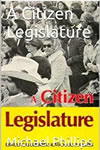All Articles
Accident Investigation & Reconstruction
Industrial Hygiene and Safety
Accounting
Intellectual Property
Alcohol, Tobacco & Other Drugs
Legal Issues
Aquatics Safety
Linguistics
Archaeology - Archeology
Logistics - Reverse Logistics
Automotive - Vehicular
Machinery
Banking
Medical - Medicine
Business Consulting
Medical Malpractice
Chemical Industry
Medical Records Review
Child Welfare
Metallurgy
Computer Forensics
Nonprofit Organizations
Computers
Pain Management
Construction
Plastic / Reconstructive / Cosmetic Surgery
Corrosion
Police Practices & Procedures
Criminology
Pools and Spas (Recreational)
Digital Forensics
Premises Liability
Domestic Violence
Professional Skills
Electrical - Electrocution
Public Speaking
Enterprise Resource Planning (ERP)
Radiology
Environment
Search Engine Optimization (SEO)
Forensic Psychiatry
Securities
Forgery & Fraud
Security
Hotels & Hospitality
Supply Chain Management
HVAC - Heating, Ventilation, Air Conditioning
Telecommunication
Hydrology
Underwriting
More...

FINANCE-PAGE ARTICLES MAIN PAGE
. Contact Us if you are interested in having your work published on our website and linked to your Profile(s).
All Articles
Accident Investigation & Reconstruction
Hazardous Materials
Accident Prevention & Safety
HVAC - Heating, Ventilation, Air Conditioning
Alcohol, Tobacco & Other Drugs
Industrial Hygiene and Safety
Anger Management & Related Issues
Injury
Aquatics Safety
Insurance
Architecture
International Trade
Banking
Linguistics
Blockchain Information
Logistics - Reverse Logistics
Boating
Medical - Medicine
Business Consulting
Medicine
Child Welfare
Neuropsychology
Computer Forensics
Nonprofit Organizations
Computers
Obstetrics - Gynecology (OBGYN)
Damages
Oil & Gas
Documentation Examination & Analysis
Pain Management
Elevators - Escalator - Automatic Doors
Pools and Spas (Recreational)
Employment
Psychiatry
Engineering
Radiology
Environment
Real Estate
Exercise & Fitness
Recreation & Sports
Failure Analysis
Securities
Foot / Ankle Surgery
Sexual Abuse - Molestation - Harassment
Foreign Affairs - Geopolitics
Spirituality
Forensic Analysis
Toxicology
Forensic Psychiatry
Warnings & Labels
More...
Featured Articles
There are no active articles here at this time. Please use the search bar, try another category, or contact us if you would like to contribute an article.
This Article is unavailable. Contact Us
Search articles by title, description, author etc.
Sort Featured Articles
Featured resources
Uncommon Perspectives on the...
by Prudence Gourguechon, MD
A Citizen Legislature
by Michael Phillips, et al
Blizzard!! The Great White Hurricane
by Timothy Minnich
Follow us










